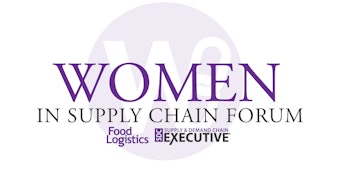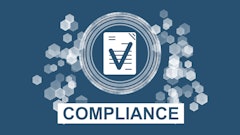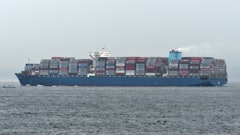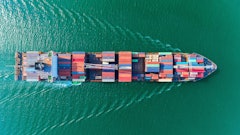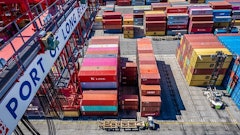Sept. 01--It's getting easier to find out where your fish oil capsules come from.
Nature Made, Nature's Bounty and Wal-Mart's Spring Valley, major brands of dietary supplements, are listing the country that is the source of their fish oil. Nature Made is also disclosing where it is tested and injected into capsules.
The move to more disclosure has been quietly rolled out and has even surprised some dietary-supplement trade groups.
Fish oil capsules -- which contain omega-3 fatty acids -- are among the country's most popular supplements because of heart-healthy claims. According to Nutrition Business Journal, $1.2 billion of fish oil was sold last year in the U.S. to tens of millions of consumers.
But except for smaller premium brands that have been amenable to more disclosure, consumers have had to buy fish oil capsules without knowing where they came from.
That lack of information was outlined in an article in The Kansas City Star in 2010. The report found that China, which had a questionable reputation for safety and quality, was a growing source of fish oil.
In the past, the major mass-produced brands have refused to provide much information about their fish oil capsules. But customers have become more demanding, and the supplement industry wants to improve its image.
Steve Mister, president and CEO of the Council for Responsible Nutrition, a dietary supplement trade group, said consumers in general want more information about the products they use. Fish oil is a very competitive business and companies are looking for ways to boost their brands.
"They want to hold on to their customers," he said.
A federal law is supposed to require disclosing the country of origin. The Tariff Act of 1930 requires that imported products, including fish oil, be clearly marked for their "ultimate purchaser" with the last country where the product underwent a "substantial transformation." Some fish oil companies asserted that bottling the capsules in the United States transforms them into a U.S. product, so they don't have to be labeled as imports.
Enforcement of import labeling for fish oil is left to U.S. Customs and Border Control, but critics charge it has been letting importers get around the law. According to The Star's 2010 story, the agency hasn't made overseeing the labeling of fish oil a priority. The federal agency didn't return a request for comment for this report.
In 2011, the Council for Responsible Nutrition asked a Washington, D.C., law firm for its opinion. In a 10-page memorandum, one of the firm's lawyers said the country that is the source of the fish oil will typically need to be disclosed. Just putting imported fish oil in capsules or in bottles or even processing the fish oil in the U.S. isn't enough of a change to call it a U.S. product.
The memo concluded with a warning: Despite the lack of regulatory enforcement, "the dietary supplement industry should be aware of the potential liability that may be incurred by failing to properly mark products with the appropriate country of origin."
Most of the fish oil industry appeared to shrug off the memo's warning for a while -- and some still do.
But that reluctance started to change as the fast-growing supplement segment hit some road bumps.
A study questioned the health benefits of fish oil, and another linked it to increasing the risk of prostate cancer. The industry attacked the studies as flawed, but roughly 12 million people stopped taking fish oil capsules.
GOED, a trade group with a mission to boost the use and quality of fish oil, says another problem is general consumer mistrust of the dietary supplement industry.
The group is working to change that in part by encouraging the industry to provide more information to consumers, from the fish oil's potency to the country of origin.
"We're urging manufacturers to be transparent," said Ellen Schutt, a spokeswoman for GOED.
Several smaller or premium brands earlier and more quickly embraced transparency, seeing it as a way to gain a competitive advantage. Those selling Norwegian fish oil, for example, have long disclosed its origins because of its reputation as a premium product.
Sam Wiley, head of the Wiley Alaskan fish oil company, comes from a family that has been in the dietary supplement business for decades. There's not been a lot of visibility in the industry about who has touched the products and where they are made. But his company's fish oil is 100 percent U.S.-sourced, refined and packaged by American workers.
"Keep your eye on us because we're growing," he said.
Nature Made on its website says its intentions to be more transparent are in the early stages.
"In the future, for example, we plan to share more detailed information about our product sourcing and manufacturing choices and sustainable environmental impact," the company states.
The company's fish oil on shelves in Kansas City state that it's from Peru, a major provider of fish oil made from anchovies and sardines. Testing and encapsulation are done in the U.S.
Wal-Mart's Spring Valley brand states on its bottles that its fish oil also comes from Peru. Nature's Bounty brand also labels that the fish oil it uses is from Peru and that encapsulation is done in the U.S.
"This is in line with U.S. Customs and Border Protection regulations," said Andrea Staub, spokeswomen for NBTY Inc. which makes Nature's Bounty brand.
Advocates of better labeling are encouraged by the drive for more transparency, but they warn it may not go far enough. While disclosing the country of origin may make it legal, they said that more detailed disclosures will be needed to be useful.
Fish oil produced in Peru can be sent to China for processing, and the final stage of manufacturing can also be done there. That includes making the gelatin capsules and injecting them with fish oil. Done correctly, this stage follows proper techniques for manufacturing and storage, and it includes laboratory analysis of the ingredients and other steps to ensure purity and potency.
OmegaVia, a premium brand of fish oil, has for some time had an extensive list of disclosures on its website and plans to roll out new labels naming the country providing the fish oil along with where it's encapsulated, tested and purified.
"People want to know where their supplements come from," said Vin Kutty, co-founder of OmegaVia.
To reach Steve Everly, call 816-234-4455 or send email to [email protected].
Copyright 2014 - The Kansas City Star

